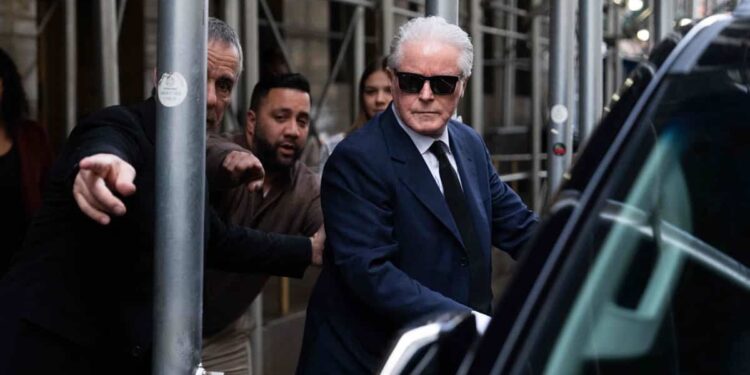New York prosecutors turned around and dropped charges Wednesday against three defendants accused of concealing manuscripts of the Eagles’ famous song “Hotel California,” an about-face that ended the trial.
• Read also: “Hotel California” manuscripts at the center of a trial in New York
At the opening of the hearing Wednesday morning, one of the prosecutors, Aaron Ginandes, announced that the late submission to the proceedings of 6,000 pages of correspondence between certain protagonists cast doubt on the solidity of the case.
Judge Curtis Farber, who validated the dropping of the charges, also strongly criticized the attitude of the founder, singer and drummer of the Eagles, Don Henley, a key witness at the trial.
“An examination of these documents shows and emphasizes that Mr. Henley and Mr. (Irving) Azoff”, the manager of the Eagles, “used their right (to professional secrecy) to protect themselves from a thorough and complete cross-examination” , said the judge.
“It is now clear that the two witnesses and their lawyers … used this right to obscure and hide information that they believed was prejudicial to their position that the manuscripts had been stolen,” he also said. estimated, ruling that prosecutors had been “apparently manipulated”.
The three defendants, including a former curator of the Rock and Roll Hall of Fame museum in Cleveland (Ohio), Craig Inciardi, a rare book dealer, Glenn Horowitz, and a third person, Edward Kosinski, were accused of having acquired then attempted to resell the manuscripts at auction, despite knowing their dubious origin.
The case dates back to the end of the 1970s, when an author, hired by the Californian rock group to write his biography, was entrusted with the handwritten notes, around a hundred pages which were used to write the album ” Hotel California” and its eponymous song. The author had not returned them, which constituted theft in the eyes of Don Henley, but not in the defense.
According to the indictment, according to Manhattan prosecutors, the pages were then sold in 2005 to Glenn Horowitz, a rare book dealer, who then passed them on to Craig Inciardi and Edward Kosinski.



